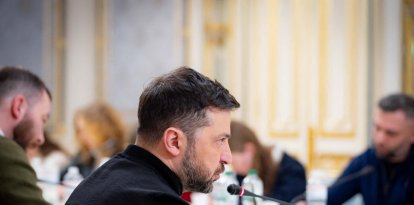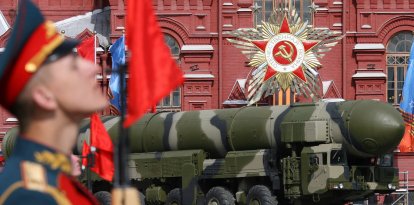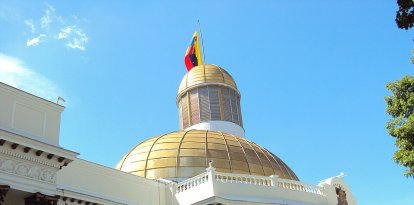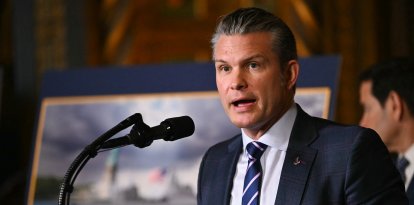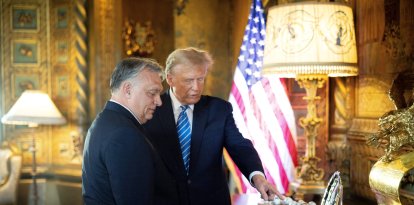Milei wages war on narcoterrorism: How Rosario became the 'Sinaloa of Argentina
The city has been dominated by local drug traffickers for years, but a string of murders seemed to be the straw that broke the camel's back. "It's them or us," the president asserted.
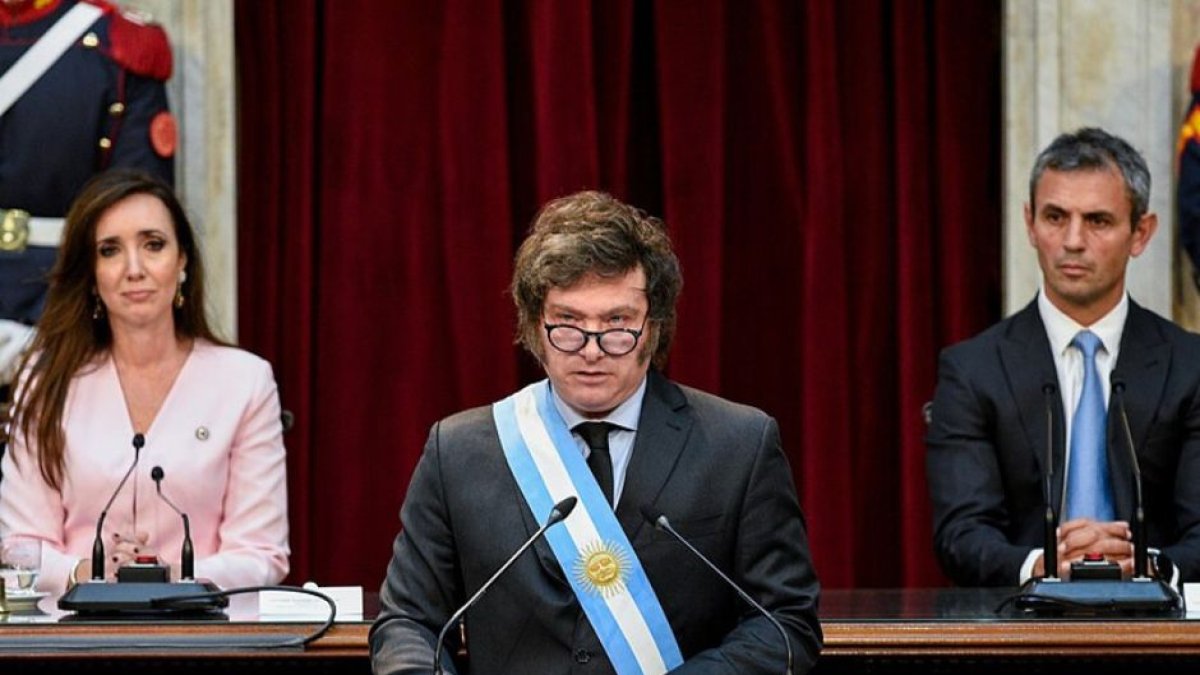
Honorable Cámara de Diputados
"Rosario, the Argentine city flooded by violence," the BBC wrote in April 2014. Ten years later, the situation in the city has only worsened. Neighbors witness how drug trafficking has taken over the streets, causing constant fear amidst murders, kidnappings and trafficking of illegal substances. The current situation in the city led analysts to nickname it the "Sinaloa of Argentina."
Nearly 200 miles from Buenos Aires in the province of Santa Fe is a kind of oasis for drug production and trafficking, with all that comes with it: a wave of crime, vendettas, corruption and, of course, fear for local residents.
The streets of the city are practically controlled by drug traffickers, who decide who lives and who doesn't at their discretion. This was recognized by Aníbal Fernández, minister of security under the government of Alberto Fernández. He declared at the time that drug traffickers "had won." The latest trend among gangs in Rosario consists of randomly murdering innocent people to send messages to other gangs and politicians.
Santa Fe was governed by socialists or Peronists from 1983 to 2023, when Maximiliano Pullaro achieved victory with Together for Change, the political party of former President Mauricio Macri.
Bruno Nicolás Bussanich, and the start of a new war against drug trafficking in Rosario
Indeed, the homicide rate per 100,000 inhabitants in Rosario is 22, five times more than the national average of 4.2, which is why it continues at the top of the ranking as the most dangerous city in Argentina.
The characterization was justified in recent days, when the city witnessed four brutal murders of innocent civilians at the hands of gang hitmen. The one that perhaps resonated most with the nation was that of Bruno Nicolás Bussanich, a 25-year-old young man who worked at a gas station who was murdered in cold blood simply to be used as a threat against local authorities.
As seen in the security camera footage, Bruno was minding his own business at work, when suddenly a hitman opened the door and shot him without saying a word.
"This war is not about territory. It is against Pullaro (governor of the province) and Cococcioni (minister of security of the province). Just as we reached 300 deaths, by being united, we will kill more innocents per year. We don't want cell phones, we want our rights. This is for all prisoners in the wards and in jail. Pullaro and Cococcioni are burdened with innocent deaths," reads a note that the criminals left next to the victim's body, signed by "Zona Norte, Zona Sur and Zona Oeste. Together."
The arrival of narcoterrorism
The city woke up in shock after the four murders. Public school classes were canceled, buses, gas stations and even hospitals were paralyzed, only serving absolute emergencies. In less than 24 hours, it became a ghost town, where residents were afraid to go outside.
The case provoked the immediate reaction of Argentine President Javier Milei, who promoted an action plan together with Security Minister Patricia Bullrich and local authorities.
“As long as I am president, we are not going to stop going after [the gangs]. We are not going to stop requisitioning the prisons. We will not hesitate when the life of an innocent person is at stake. We are not going to allow them to continue governing Rosario. Law enforcement have our unrestricted support to do whatever is necessary to restore order,” said President Javier Milei, who hours later began working side by side with Governor Maximiliano Pullaro.
"It's them or us. And we decide that it is us. We are not going to give them a truce," added the president.
Bullrich even used the term "narcoterrorism" when talking about the city, a term explained by Agustín Etchebarne, general director of Fundación Libertad y Progreso, in an exclusive conversation with Voz Media.
For Etchebarne, this concept occurs when "drug traffickers begin to introduce terror to achieve their objectives, ... in order to generate inaction in society. That's what terrorists did in the '70s."
"What they have done in Rosario is exactly that. It is no longer murder between gangs for intimidation, but rather it is a higher level of terrorism, when they decide to kill innocent people indiscriminately. ... That generates terror and paralysis throughout society," he added.
How did the city end up in this situation?
To begin, one must highlight the strategic location of the city of Rosario, situated on one of the most important ports in the region. The sale of drugs began continuously in the late 1990s, led by different criminal groups that fought over the import of cocaine base paste, a product that is later converted into cocaine, from Bolivia.
In this context, the criminal group known as La Banda de los Monos, emerged, orchestrated by the Cantero family. As the years went by, they amassed power until they managed to weave a network of relationships with different public figures, which allowed them to control the micro-trafficking of narcotics in Rosario. In other words, they were bending wills, including those of the authorities on duty, to ensure the continuation of the drug business and its expansion.
A key year for this drug trafficking network was 2007, when the import of cocaine from Bolivia began to be replaced by local production. The change in the game saw the birth of small drug labs, which little by little increased the supply and a subsequent explosion in consumption.
The latter was evidenced by the creation of dozens of "bunkers," which are simply fixed places visible to everyone, where neighbors and authorities are perfectly aware that drugs are sold.
Los Monos suffered a serious blow in 2013, when their leader, "El Pájaro," was gunned down outside a nightclub. The event resulted in the emergence of many different criminal gangs, which began to hire young hitmen at very low cost to target each other, thus beginning a wave of violence like never seen before.
Other criminal leaders who emerged since then were Esteban Alvarado, the Funes brothers and Luis Medina.
Since then, kidnappings and random killings have become customary to send messages to both the authorities and rival drug traffickers. They even shot up the supermarket owned by the family of Antonella Rocuzzo, the wife of soccer player Lionel Messi, as well as a primary school where they murdered an 11-year-old boy, Máximo Jerez.
It would be logical to think that the arrest of criminal leaders would make their work more difficult, but it turns out that in Rosario, things are the other way around. For example, Guillermo Cantero, who years later took power in Los Monos, was arrested in 2021 and yet continued to control the streets from behind bars. He even had a landline phone in prison that allowed him to continue to orchestrate the criminal activity of his subordinates.
Are the police complicit in drug trafficking?
Germán de los Santos and Hernán Lascano are two local journalists who recently published a book titled "Rosario: La Historia Detrás de la Mafia Narco que se Adueñó de la Ciudad" ("Rosario: The Story Behind the Drug Mafia that Took Over the City").
In just over 350 pages, the authors tell the story of how the city ended up in the clutches of drug traffickers. According to their account, this crusade would have been impossible without the complicity of the authorities.
"The police were vital so that these bunkers were not raided, because there was direct complicity there. The police collected money from Los Monos and that was evidenced in the court case that took them to jail, where half of the members of the gang were police officers," Los Santos explained in an interview with Filo News.
'The presence of the military in the streets is urgent'
Voz Media spoke with members of the Senate and the Chamber of Deputies who represent the province of Santa Fe in the Argentine Congress to explore some solutions to the narcoterrorism that afflicts the city of Rosario.
For Carolina Losada, senator for Together for Change, the current situation in Rosario is a result of years of "apathy on the part of the federal government and the provincial government." Regarding the first point, it was targeted directly at the management of Alberto Fernández, who "did absolutely nothing" to combat drug trafficking in the city.
As for the past local authorities, she assured that they chose to "look the other way" and "let things be done." Specifically, she mentioned the little-to-no investment made by past provincial administrations in security matters. For example, she spoke of very low budgets, which led police to forgo the purchase of bullets, bulletproof vests and police cruisers. Until recently, there were only 19 police vehicles to serve more than 3 million residents.
Alejandro Bongiovanni, national deputy for Together for Change, openly mentioned a policy that worked in New York at the end of the 20th century. Specifically, he talked about the broken window theory, which concludes that "petty crime encourages people to commit bigger crimes," creating a climate in which "small offenses are not punished, creating incentives for larger offenses."
According to this theory, developed by James Q. Wilson and George Kelling, crime is higher in neglected, unclean and abused areas, such as Rosario. When small offenses, like parking illegally, speeding or running a red light go punished, this will lead to major offenses and then increasingly serious crimes.
The deputy seemed hopeful of the fact that there is an "aligned will" between the federal government and the new government of Santa Fe on the problem of drug trafficking.
For her part, Rocío Bonacci, national representative for La Libertad Avanza, summed up the experiences of her constituents.
"We are going through a time of great fear and uncertainty, where residents are afraid to take their children to school or even go shopping at the supermarket. It can not go on like this. Although now we cannot take a single step back, and the actions of law enforcement must be toughened, it is important that for that to happen, the streets are protected. The governor's actions were correct, but a perfect plan is necessary in the city of Rosario, where not a street or avenue is left unpatrolled," she said.
"That is why the presence of the military in the streets, of the Armed Forces, is now urgent," she added, not backing away from the local controversy about the legality of the involvement of the military in this type of combat.
The controversy over military intervention to defeat narcoterrorism in Rosario
To combat the problem, Milei and Bullrich launched a Crisis Committee in Rosario, which focuses on some central points to combat organized crime. One of them directly mentions military involvement to provide "logistical support" to federal forces.
The decision sparked controversy in some sectors of the opposition, who claim that the military does not have the legal power to intervene.
In this field, the legislation that predominates is the National Defense Law, whose text establishes that the military exists to combat threats with an external origin, when of course the case of Rosario applies to internal security.
However, article 27 of the Internal Security Law indicates that the military can assist in support functions for federal forces, as long as a crisis committee has been invoked priorly. Therefore, although they will not be able to effectively combat criminals, they are legally authorized to provide the logistical support that the federal government has mentioned.
What would have to happen for them to participate in combat? The federal government would need to decree a state of siege in the province of Santa Fe. This is an exceptional measure that implies the maximum suspension and restriction of constitutional rights and guarantees. It is a kind of equivalent to a state of war, so the military would acquire extraordinary powers.
How is the situation currently?
For now, the crisis committee will begin to operate in Rosario, and Bullrich has already announced that she is preparing an "Anti-Mafia Law" to send this week to the Chamber of Deputies.
As revealed by Infobae, this proposal would be inspired by the "RICO" law approved in 1970 by the United States Congress. It allows prosecution and civil penalties for organized crime.
“It consists of attacking the flow of money. The problem you have today is that crimes are attacked individually, the organization is not considered as a whole, as if it were a 'company,' and criminal organizations create a circuit where you grab them by one part, but you can't go for the whole thing," a source close to Bullrich told Infobae.
In turn, Bullrich began to welcome federal forces in Rosario and confirmed that President Milei will visit the city in the coming days to "give an imprint to the fight against drug trafficking."
For now, a $10-million investment was announced by the Ministry of Security to strengthen law enforcement. It consists of 10,000 bulletproof vests, 2,000 shotguns, various ammunition supplies, 100 trucks, 70 motorcycles and the repair of six helicopters and two airplanes.














